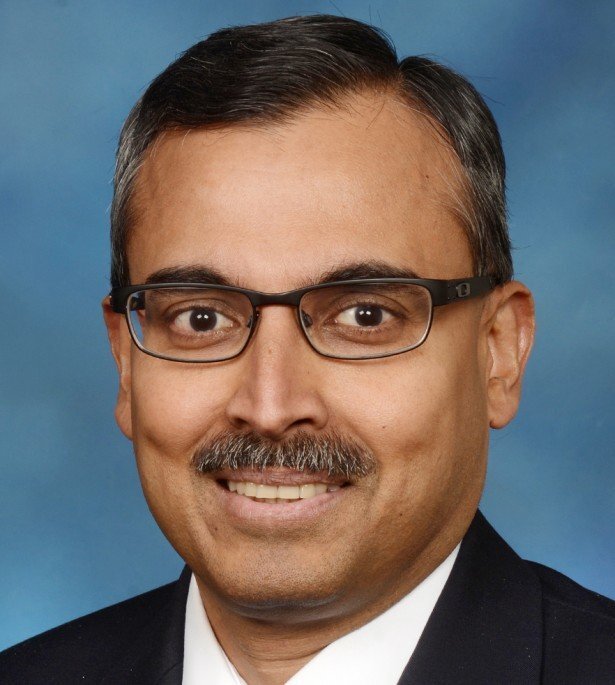കോവിഡ് 19-ശാസ്ത്രത്തിനു വെല്ലുവിളി (ഡോ. ശ്യാം കൊട്ടിലില്, എം.ഡി., പി.എച്ച്.ഡി)

യൂണ്വിഴ്സിറ്റി ഓഫ് മെരിലാന്ഡ് സ്കൂള് ഓഫ് മെഡിസിന്റെ ഭാഗമായ ഇന്സ്റ്റിറ്റ്യൂറ്റ്യുട്ട് ഓഫ് ഹ്യൂമന് വൈറോളജിയില് ക്ലിനിക്കല് കെയര് ആന്ഡ് റിസര്ച്ച് ഡയറക്ടറും ഇന്ഫെക്ഷ്യസ് ഡിസീസ് വിഭാഗം മേധാവിയുമാണ് മലയാളിയായ ഡോ. ശ്യാം കൊട്ടിലില്
കോവിഡ് 19
ഇന്ത്യയും യുഎസ്എയും ഉള്പ്പെടെയുള്ള മിക്ക രാജ്യങ്ങളും ഈ പകര്ച്ചവ്യാധിയുടെ ഘട്ടം 1-ല് നിന്ന് (ഇറക്കുമതി ചെയ്ത കേസുകള്)രണ്ടാം ഘട്ടത്തിലേക്കു (കമ്മ്യൂണിറ്റി ട്രാന്സ്മിഷന്) നീങ്ങുന്നു.
മെഡിക്കല് സംവിധാനങ്ങളെ തകിടം മറിക്കുന്ന രീതിയില് രോഗം പടരാതിരിക്കാനാണ് അഥവാ കമ്മ്യൂണിറ്റി കൈമാറ്റം തടയുന്നതിനാണ്, ഈ സമയത്ത്കടുത്ത നടപടികള്. ചൈന, ഇറ്റലി, ഇറാന് എന്നിവ ഈ ഘട്ടത്തിന്റെ ഉദാഹരണങ്ങള്.
ഈ സമീപനം കേസുകളില് ദ്രുതഗതിയിലുള്ള വര്ദ്ധന തടയുന്നു.ഇത് ആരോഗ്യ വിദഗ്ധര്ക്ക്പ്രതികരിക്കാനും വ്യാപനം തടയാനും സമയം നല്കുന്നു.
ഈ രോഗം ബാധിച്ചാല്മരണനിരക്ക് 1-2 % വരും. നൂറു പേരില് ഒന്നോ രണ്ടോ പേര് മാത്രം എന്നര്ഥം.50 വയസ്സിനു മുകളിലുള്ളവര്ക്ക്, പ്രത്യേകിച്ച് രോഗങ്ങള് ഉള്ളവരില് (ഉയര്ന്ന രക്തസമ്മര്ദ്ദം, പ്രമേഹം, രോഗപ്രതിരോധ ശേഷി കുറവ്, ശ്വാസകോശ രോഗങ്ങള്) മരണനിരക്ക് അതിവേഗം ഉയരുന്നതായി കാണുന്നു.
വാക്സിനുകള്
ഇന്നത്തെ സാങ്കേതികവിദ്യയുടെ കാലഘട്ടത്തില്, പുതിയ വൈറസിനെ ക്രമീകരിക്കുകയും കാന്ഡിഡേറ്റ് വാക്സിനുകള് നിര്മ്മിക്കുകയും ചെയ്യുന്നത് വളരെ എളുപ്പമാണ്. എന്നിരുന്നാലും, മനുഷ്യരില് സുരക്ഷയും രോഗികളില് ഫലപ്രാപ്തിയും പ്രകടമാക്കുന്നതിന് ഈ വാക്സിനുകള് ഉപയോഗിച്ച്ക്ലിനിക്കല് പഠനങ്ങള് നടത്തേണ്ടതുണ്ട്. ഇതിനു സമയമെടുക്കും, പൂര്ത്തിയാക്കാന് ഒരു വര്ഷമെങ്കിലും പ്രതീക്ഷിക്കുന്നു.
അവ ഫലപ്രദമാണെന്ന് കണ്ടെത്തിയാല്, എല്ലാവര്ക്കും പ്രതിരോധ കുത്തിവയ്പ്പുകള് നല്കുന്നതിന് വലിയ അളവില് വാക്സിനുകള് നിര്മ്മിക്കാം, പ്രത്യേകിച്ച് ഏറ്റവും സാധ്യതയുള്ള രോഗികള്ക്ക്. കോവിഡ് വൈറസ്, ഇന്ഫ്ലുവന്സ പോലെ മരുന്നിനെ ചെറുത്ത് നിന്നാല്, അത് പരിവര്ത്തനം ചെയ്യാനും പ്രതിരോധ കുത്തിവയ്പ്പുകള്ക്ക് വെല്ലുവിളിയാകാനും സാധ്യതയുണ്ട്.
ചികിത്സകള്
നിലവില് പ്രത്യേക ചികിത്സകളൊന്നുമില്ല. പിന്തുണാ പരിചരണം മാത്രം. (ഓക്സിജന്, ശ്വസന പിന്തുണ, ഐ.വി ദ്രാവകങ്ങള്, പോഷകാഹാരം തുടങ്ങിയവ.)
ഗുരുതര രോഗികള്ക്ക് പല തരം മരുന്നുകള് നല്കുന്നു. എന്നു കരുതി അവ അംഗീകൃത ചികിത്സയാണെന്ന് ഇതിനര്ത്ഥമില്ല. ആന്റിവൈറല് മരുന്നുകള് (ഗിലിയാഡ് സയന്സസ് നിര്മ്മിച്ച റിമെഡിവിര് -ഇത് വൈറസുകള്ക്കെതിരായി പ്രവര്ത്തിക്കുന്നു.) മലേറിയ മരുന്നുകള് (ക്ലോറോക്വിന്), എച്ച്ഐവി മരുന്നുകള് (പ്രോട്ടീസ് ഇന്ഹിബിറ്റര്, ഇത് കോവിഡ്-19 വൈറസിനെ തടസ്സപ്പെടുത്തിയേക്കാം), ആന്റി ഇന്ഫ്ലമേറ്ററി മരുന്നുകള്. (ഇതിനു വീക്കം, ശ്വാസകോശ തകരാറുകള് എന്നിവ തടയാന് കഴിയും)
നാഷണല് ഇന്സ്റ്റിറ്റ്യൂട്ട് ഓഫ് ഹെല്ത്ത്(എന്എഎച്ച്) ഇവയില്റെമെഡെസിവിര് പരിശോധിക്കുന്നു. എന്നിരുന്നാലും, ഏകദേശം ഒരു വര്ഷം വരെ ഈ ട്രയല് ഫലങ്ങള് നല്കുമെന്നു കരുതുന്നില്ല
ഉത്തരം ലഭിക്കാത്ത ചോദ്യങ്ങള്
രോഗലക്ഷണങ്ങളില്ലാത്ത ആളുകള് രോഗം പരത്താന് കാരണമാകുന്നുണ്ടോ?
ഈ വൈറസ് സീസണല് ആയിരിക്കുമോ? (അതായത് കാലക്രമേണ അത് തണുത്ത രാജ്യങ്ങളിലേക്ക് നീങ്ങുമോ അതോ ഇന്ഫ്ലുവന്സ പോലെ നമ്മോടൊപ്പം തുടരുമോ?)
പ്രായമായവരെ ഗുരുതരമായി ബാധിക്കുന്നത് എന്തു കൊണ്ട്?
ഇന്ഫ്ലുവന്സ പോലെ കാലക്രമേണ സ്വയം പരിവര്ത്തനം ചെയ്ത് പ്രതിരോധ കുത്തിവയ്പ്പുകള്ക്ക് കൂടുതല് വെല്ലുവിളിയാകുമോ?
എല്ലാ രോഗികളെയും ചികിത്സിക്കുന്നതിനു ഫലപ്രദമാകുന്ന ആന്റിവൈറല് ഏജന്റ് വികസിപ്പിക്കാന് കഴിയുമോ?
നിര്ദ്ദിഷ്ട ചികിത്സകള് ലഭ്യമാകുന്നതുവരെ ഗുരുതര രോഗികളെ മരണത്തില് നിന്നു രക്ഷിക്കാന് ഉതകുന്ന മരുന്നുകളുടേ കൂട്ട് (കോക്ടെയ്ല്) നമുക്ക് വികസിപ്പിക്കാന് കഴിയുമോ?
COVID19
Most countries including
Vaccines
In today’s age of technology, it is very easy to sequence the new virus and make candidate vaccines (aka pieces of the virus that seem to be important for its division). However, we will need to perform clinical studies using these vaccines to demonstrate safety in humans and then efficacy in infected patients. This will take time and likely take a year to complete (https://www.statnews.com/2020/03/11/researchers-rush-to-start-moderna-coronavirus-vaccine-trial-without-usual-animal-testing).
If they are found to be effective, then we could make vaccines in large quantities to provide immunizations for all, especially the most susceptible patients. If the virus sticks around the world like influenza, then it is possible it will mutate and become a challenge for vaccinations.
Therapies
Currently there is no specific treatment for COVID19. We only provide supportive care (oxygen, breathing support, IV fluids, nutrition etc). There are several agents being tested for severely sick patients on a compassionate basis. This does not mean they are approved treatment with proven efficacy. These include specific antiviral (remdesivir made by Gilead Sciences, with a broad activity against RNA viruses like COVID19, influenza medications), malaria medication (chloroquine), HIV medication (protease inhibitor, that may disrupt COVID19 virus), and anti-inflammatory medications such as antibody to human cytokine interleukin-6, (that can prevent inflammation and lung damage). Of these remdesivir is being tested in a clinical trial by NIH to show efficacy in severely sick patients with COVID19. However, this trial will not provide results until about a year. (https://www.niaid.nih.gov/news-events/nih-clinical-trial-remdesivir-treat-covid-19-begins).
Unanswered questions
Are people without symptoms contributing to the transmission?
Is the virus going to be seasonal (like influenza, which means it will move to colder countries over time, but remain with us like influenza)?
What makes older people susceptible to severe disease?
Will the virus change over time (mutate) like influenza and make vaccinations more challenging?
Can we develop a direct antiviral agent that can be effective in treating all patients?
Can we develop a treatment cocktail that may prevent deaths from severely infected patients until we have specific treatments are available?
Shyam Kottilil MD, Ph.D
Director, Division of Clinical Care and Research
Chief, Division of Infectious Diseases
University of





